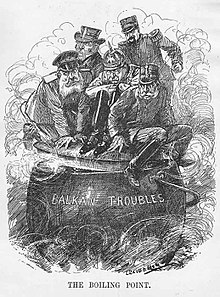Sept. 19/20
1. Conclude French Revolution Documentary (Absent students will do alternate assignment. Please see Mr. Neal for this task.)Video questions Due at conclusion of video
2. Old Reigme Journal Entry (see directions below)
3. Reign of Terror through Directory (Ch. 7 sec. 2-3)
***Quiz on Weds 9/21 and Thursday 9/22 (Ch. 7 sec. 1/2 all bold terms/names may be on quiz, hint: items from your notes will be main focus)
Old Regime---Journal Entry
• Write about what life was like under the old Regime (as a peasant, clergy member, noble or part of the royal court) by discussing the conditions, the financial crisis, other factors, and what should be done to resolve the problems of France prior to outbreak of the French Revolution.
****Absent students on one of the two video days will complete the following: p. 243; Writing About History (Only complete the first four bullets on this assignment)
**EACH JOURNAL ENTRY MUST BE 5-8 SENTENCES LONG AND BASED ON THE FOLLOWING:
1. REVOLUTIONARY (FIRST BULLET)
2. A WOMAN DURING THIS TIME PERIOD (2ND BULLET)
3. A SPECTATOR OF THIS EVENT (3RD BULLET)
4. A SUPPORTER OF ROBESPIERRE (4TH BULLET)
Sept. 21-23
1. French Revoluton Quiz Ch. 7 sec. 1-2
2. Create a Venn Diagram Comparing and Contrasting the American Revolutions (Causes, Groups/People, Key Documents and Effects)Resource: pp. 272-277
3. Directory to Age of Napoleon (ch. 7 sec. 3-4)
4. Napoleon Political Cartoon Activity (to be completed in class)
Unit 2 Test Sept. 28th and 29th(Study Guide Coming Soon!
Objectives:
1. Compare the major ideas of philosophers (e.g., John Locke, Charles-Montesquieu, Jean-Jacques Rousseau, Simon Bolivar, Thomas Jefferson, James Madison).
2. Compare the effects of the major ideas of philosophers (look at names in objective II) on the democratic revolutions in England, the United States, France, and Latin America.
3. List the principles of the Magna Carta, the English Bill of Rights (1689), the American Declaration of Independence (1776), the French Declaration of the Rights of Man and the Citizen (1789), and the U.S. Bill of Rights (1791).
4. Compare the principles of the Magna Carta, the English Bill of Rights (1689), the American Declaration of Independence (1776), the French Declaration of the Rights of Man and the Citizen (1789), and the U.S. Bill of Rights (1791)
















